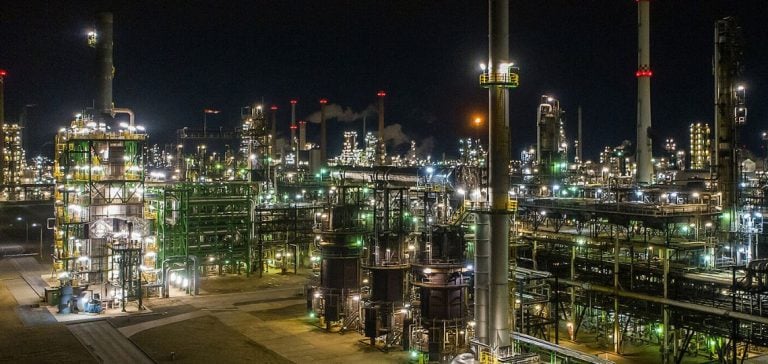The case between Rosneft and Shell concerning the sale of the latter’s stake in the PCK Schwedt refinery illustrates the growing tensions in the European energy sector, exacerbated by the current geopolitical context.
Rosneft, which owns 54.17% of the refinery, was stripped of its control in 2022 by the German government following Russia’s invasion of Ukraine.
This decision marked a turning point in energy relations between Germany and Russia, as Germany took steps to reduce its dependence on Russian energy.
Shell’s decision to sell its 37.5% stake in the refinery to Prax Group, a British company, prompted an immediate reaction from Rosneft, which invoked a right of pre-emption.
However, a preliminary assessment by the Düsseldorf Higher Regional Court, published this week, appears to be unfavorable to Rosneft.
Energy context and challenges
The Schwedt refinery, which supplies 90% of the fuel needs of Berlin and the surrounding region, is of strategic importance to Germany.
Rosneft, which held a dominant position in this refinery before the war in Ukraine, now finds itself in a delicate situation.
In 2022, in the face of war and sanctions against Russia, Germany took the decision to place Rosneft’s assets under trusteeship to ensure the continuity of energy supplies.
This reorganization of Russian energy assets in Germany took place against the backdrop of a broader overhaul of German energy policy.
Indeed, Germany’s historical dependence on Russian energy has prompted the country to accelerate the transition to alternative energy sources.
This includes not only diversifying oil supplies, but also strengthening local infrastructures to guarantee energy security.
Legal and strategic issues
Rosneft is contesting the sale on the basis of a shareholders’ agreement granting it priority purchase rights in the event of a share sale.
However, Judge Anne Frister of the Düsseldorf District Court has indicated that the conditions of this right of first refusal may not apply in this specific case, thus weakening Rosneft’s legal position.
For its part, Shell, in partnership with Prax Group, seems confident of reaching an agreement, but Rosneft has already announced that it will appeal if its complaint is rejected.
A decision with geopolitical consequences
Beyond the purely legal aspect, this case has important geopolitical implications.
The war in Ukraine has transformed the European energy landscape, with European Union countries determined to free themselves from dependence on Russian energy.
Germany, in particular, has had to reassess its relations with Russia, leading to the temporary nationalization of certain assets, including Rosneft’s stake in Schwedt.
If Rosneft’s complaint is rejected, this could accelerate the sale of these assets to Western companies, strengthening their presence in the German energy market.
Prax Group’s prospects and Rosneft’s concerns
Rosneft raises concerns about Prax’s ability to manage the refinery effectively.
The company’s lawyers claim that Prax is heavily indebted and lacks experience in the German market, which could adversely affect the facility’s future performance.
These economic concerns highlight the risks associated with selling strategic assets to companies deemed less robust.
However, the German government appears ready to support this transition, as part of its efforts to diversify energy sources and reduce dependence on Russian oil.
Consequences for the European energy market
The court’s final decision will have a major impact not only on Rosneft and Shell, but also on the entire European energy sector.
If Rosneft loses its appeal, it could set a precedent for other Russian companies seeking to retain their assets in Europe.
Conversely, a Rosneft victory could complicate future transactions in the energy sector, particularly with regard to the management of Russian assets under sanctions.
The Rosneft-Shell case highlights the complex interplay between legal, economic and geopolitical considerations in the energy sector.
The situation in Germany reflects a wider movement to reorganize energy supply chains across Europe, a process that will be closely watched by market observers.






















